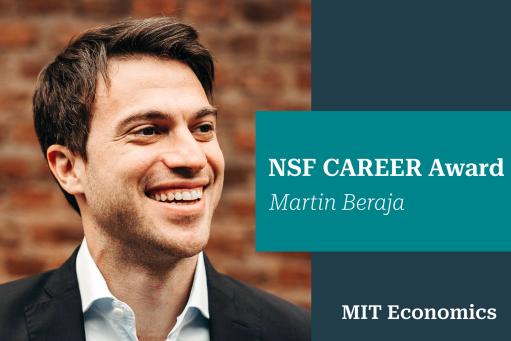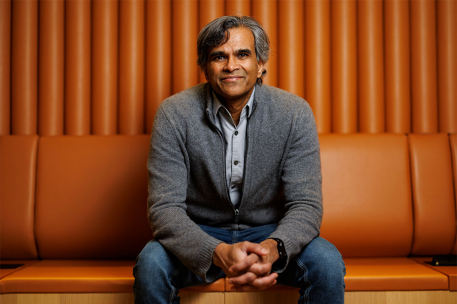Martin Beraja, the Pentti Kouri Career Development Associate Professor of Economics, has been awarded a CAREER Award from the National Science Foundation in support of his research on the role of government policy in stabilizing business cycles and responding to the challenges posed by new digital and automation technologies.
The NSF’s Faculty Early Career Development Program (CAREER) supports “early-career faculty who have the potential to serve as academic role models in research and education and to lead advances in the mission of their department or organization.”
The award will support five of Beraja's ongoing projects, which, taken together, aim to advance understanding of core issues in macroeconomics, as well as connect to broader questions in political economy, industrial organization, and labor economics.
Two of these projects focus on business cycles and stabilization policy. The first builds on Beraja's previous work on how the dynamics of spending in durable goods affect economic recoveries to study how durables shape the design of stimulus checks. The second project uses methodology developed in Beraja's job market paper to quantify how US fiscal integration helps stabilize regional business cycles.
Beraja's three remaining projects deal with the role of government in regulating and responding to new technologies. His third project studies the international ramifications of China's leadership in surveillance technology, extending his previous research on the interplay between data, AI, and the Chinese government. In his fourth project, Beraja focuses on how to regulate technological industries with the potential to become concentrated, such as new digital industries where data can lead to strong economies of scale.
In previous work, Beraja has studied the ways that labor markets adjust to technological innovations- specifically, optimal policy responses to automation technology that displaces workers. His fifth CAREER Award-supported project studies how governments should manage episodes of labor reallocation more generally, such as those induced by trade liberalizations or carbon taxation.
Beraja earned his PhD from the University of Chicago in in 2016 and joined the MIT faculty in in 2017 after spending one year as a postdoctoral research associate at the Louis A. Simpson Center for the Study of Macroeconomics and the Department of Economics at Princeton University.
Martin Beraja awarded NSF CAREER Award
July 11th, 2023


